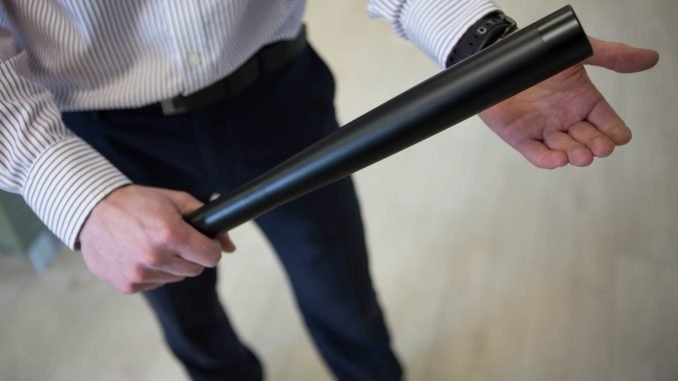
The Seimas is planning to rein in institutions and businesses planning to make use of government funds unfairly. The Seimas has prepared amendments to the Public Procurement Law which will increase responsibility for public procurement breaches.
The Delfi news portal was told by Seimas Committee of Economics Chairman Virginijus Sinkevičius, next Wednesday, February 15, the committee will deliberate on the newly prepared legislative amendments.
“There are proposals to expand the authority of the Public Procurement Service, make penalties harsher,” the member of Seimas summarised.
According to him, with the Public Procurement Service observing a minor breach the penalty of a warning would remain, but with intentional breaches being noticed, a penalty of 10% of the illegal transaction would be set, with the second penalty reaching 20%. The public procurement participant which caused the breach would be penalised.
Sinkevičius explains that there are notions of personal responsibility for individuals in leadership, based on the Code of Administrative Offences.
Another new proposal is a stricter internal transaction regulation.
“Firstly the Public Procurement Service will have the authority to constantly control internal transaction, something it was unable to do so far. Secondly, if the service permits an internal transaction, subcontracting will not be permitted,” V. Sinkevičius said.
Such an amendment was motivated by the case of Lietuvos Geležinkeliai. “We saw that in their case 70% of internal transactions were subcontracted. By subcontracting prices were inflated and funds would disappear. Thus internal transactions will no longer be allowed to be subcontracted,” Sinkevičius explained, albeit noting that state subjects will still be able to form internal transactions, with some, such as Invega or even municipalities, depending on internal transactions.
On the other hand they will be restricted – the number of internal transactions will not be allowed for companies where the state owns 50% or more of its stock.
The cost of appealing public procurement competition results to courts will be increased for businesses.
“The cost was increased to 2% of the value of the procurement. A ceiling is to be set at 12,555 euro, with it rising to 15,000 euro from 2018. Here we see more of a trend, there is blackmail observed here – companies which have no way of winning or accomplishing the projects enter the competitions and then take the winners to court. This can sometimes delay projects by 3-4 years. In such cases it happens that companies choose the peaceful method and pay the smaller party,” the politician noted.
A familiar problem
President to the Lithuanian Business Confederation Valdas Sutkus stated he agrees with the rise in appeal costs, however disagrees with the cost ceiling of 12,555 euro.
“In fact the whole public procurement regulation should be changed. Speaking of the appeal cost, of course it is necessary because currently abuse of the legislation is spreading in Lithuania. The system operates at a primitive and simple level – if there is a competition, then there can be one winner, with some of those who lost giving up, but some other taking matters to court. The court proceedings are reaching a scale never seen before – appeals are made by companies that have not even participated in the competitions. This way public procurement end up with abnormal duration,” the business representative explained.
According to Sutkus there are cases where from the announcement of the competition up to the signing of the agreement two and a half or even more years pass.
“Imagine the purchasing organisation wants to build a bridge, but cannot do so for all this time because all procurement procedures are frozen and court proceedings are ongoing. It even happens that some businesses the launch the appeals visit the winners and offer to come to terms to cancel the appeal,” he said.
As such the business representative views the appeal cost as a disciplinary measure. He notes that in some countries the appeal cost reaches even beyond 5% of the contract value.
At the same time the Lithuanian Business Confederation president speaks against setting a ceiling appeal cost and does not believe that the lack of a ceiling would prevent appeals against public procurement due to a company’s financial status.
“Imagine I have a construction company with ten employees, while you have a thousand employees and the competition is for a project valued at 100 million euro. I cannot participate in such a competition because a company of my size could not accomplish a project of such scale.
Small companies participate in small scale projects, large companies in large scale projects,” he said, noting that small companies that participate in public procurement competitions in accordance with their capacities will definitely be capable of paying the 2%, while the ceiling sum, if actually implemented, should be at least 150 thousand euro.
The proposals still have to be passed by Seimas and President Dalia Grybauskaitė.

Be the first to comment